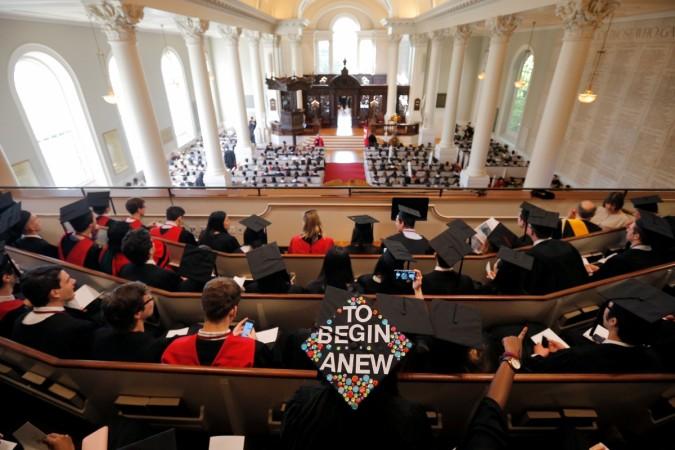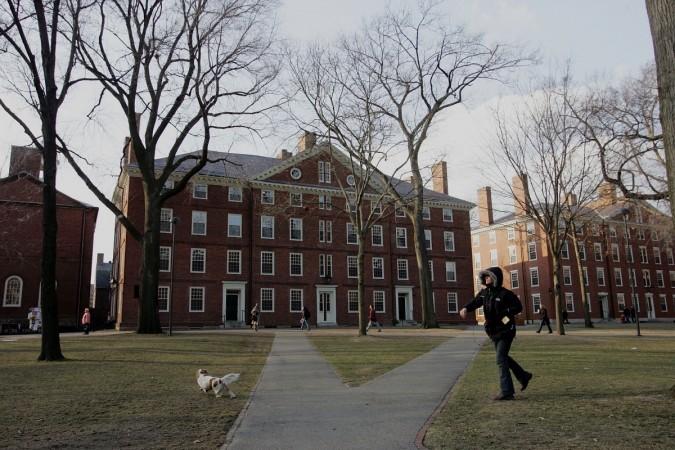
Securing an admission in one of the prestigious Ivy League universities is definitely a dream come true for the ambitious lot. Well, according to Harvard University, it is best kept a secret as well.
The Cambridge-based university is facing a lawsuit which accuses them of discrimination against high-achieving Asian-American applicants, raising questions on how Harvard evaluates potential students.
While Harvard vehemently denies the claim, it certainly seems like the institution wants to keep many details a secret.
The business school filed a brief last week arguing that some documents produced by the court, which include internal training material and preliminary snapshots of the admitted class during the application cycle, should be kept confidential. Though the brief is just a small part of the larger request.
The school wants to keep certain documents like individual applicant files or alumni correspondence under wraps, supposedly to protect student and applicant privacy. Here's what the school's statement read:
Harvard is deeply committed to protecting the extensive personal information applicants entrust to us in the admissions process."
Throughout the case, the school has argued that the way it selects the incoming classes is tantamount to trade secrets. The officials from the school say that keeping the 'narrow category of documents' under seal is to protect the privacy and integrity of the admission process.
Here's the argument put forth by Harvard's lawyers in the brief:
It is not difficult to imagine how Harvard's competitors might try to utilize information about Harvard's yield rates, or the number of students Harvard seeks to admit from certain geographic territories, to their advantage, and to Harvard's detriment."
The lawyers argue that releasing the documents would also lead the applicants to 'game the system' by changing their conduct, and suit them to what Harvard's academic preferences in students.
Releasing the documents would be a great disadvantage to Harvard as, "in the extremely competitive market to recruit, admit, and enroll the most outstanding students across the world," said the brief.
The lawsuit against the University last month by the Students for Fair Admission group that claims the Harvard was biased against Asian-Americans and showed a disproportionate preference for black and Hispanic applicants.

According to the figures mentioned in the lawsuit filed against Harvard, the chances of admission for an Asian-American male applicant (originally with a 25 percent possibility of being accepted) would increase to 35 percent if he was white but increase to a lot more if he was Hispanic or black, 75 percent and 95 percent respectively.
The brief only referred to male applicants and did not provide a similar breakdown for women.
Students for Fair Admissions founder Edward Blum, who is also a legal strategist, issued a statement saying the group's filing 'exposes the startling magnitude of Harvard's discrimination'.
The case filed is built on records detailing Harvard's admissions decisions for individual applicants from the year 2010 through 2015.
The counter-argument from the University says that the group's analysis is 'incomplete and misleading' and paints a 'dangerously inaccurate picture'.
Peter Arcidiacono's findings
The Students for Fair Admissions group alleges the Harvard university discriminatory process based on the analysis of an economist from Duke University, Peter Arcidiacono.
His study concluded that if Harvard's application process relied only on academic scores of each applicant, more than half the students would be Asian-American in those six years in question. But they made only 22 percent. Arcidiacono claims that he found the evidence of bias against Asian-Americans.
The economist stated that in the process of rating students based on their qualities, Asian-American applicants consistently scored lower than their white peers.
What scores were lower?
Asian-Americans received lower scores in the category 'personal qualities'. They were considerably marked with low scores than their white peers in the overall rating that was not based on any particular formula.
He claims that the Asian-Americans scored much more than that when they were interviewed by Harvard alumni. This stark contrast is the bias.
Harvard's counter argument
The Harvard University has countered the lawsuit as an attack on their ability to consider 'race' in the admission process, which according to them is to ensure diversity in the campus.
Harvard sought its own study from David Card, an economist at the University of California, Berkeley. He found that there was no evidence of discrimination against Asian-Americans as the effect of being Asian-American was 'statistically indistinguishable from zero' based on the admission factors and pool of applicants.
The judge ultimately sided with Harvard in its battle to keep their admissions process data under wraps. However, Blum still believes that the remaining records will be released 'in the next few weeks.'

















